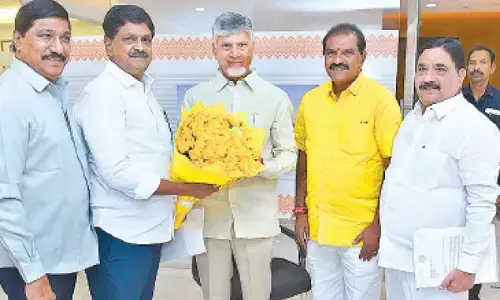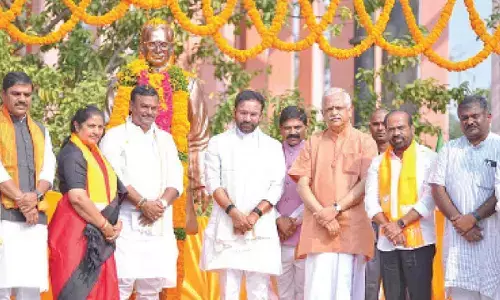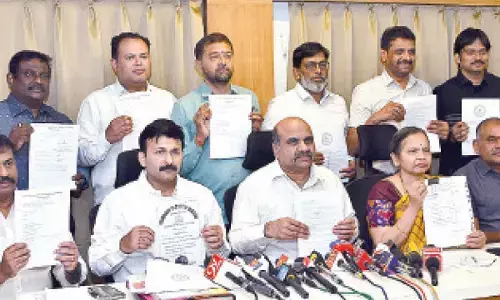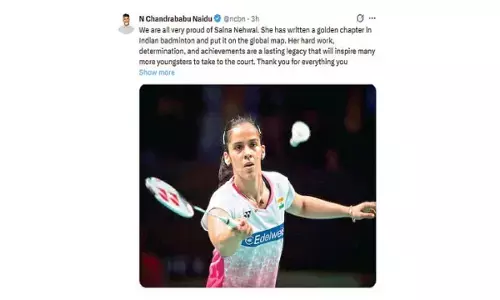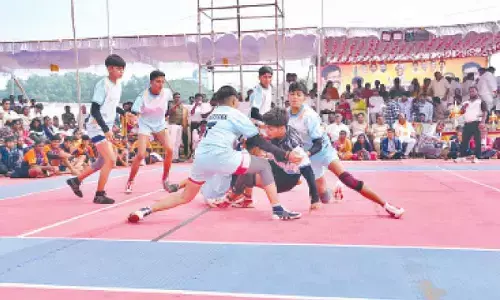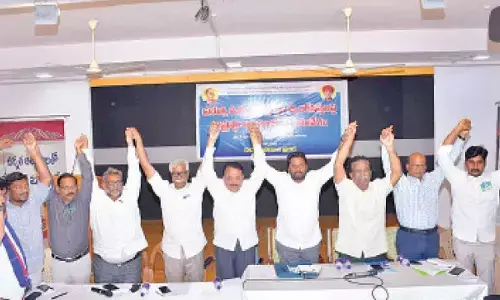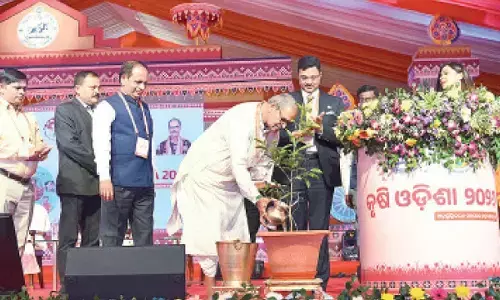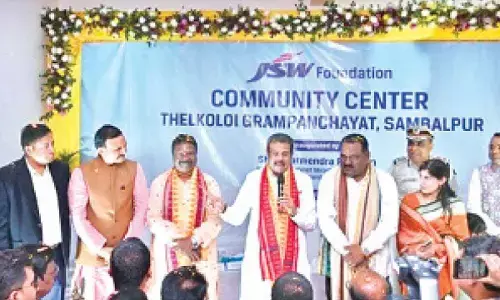Naga peace talks, ex-babus and roadblock
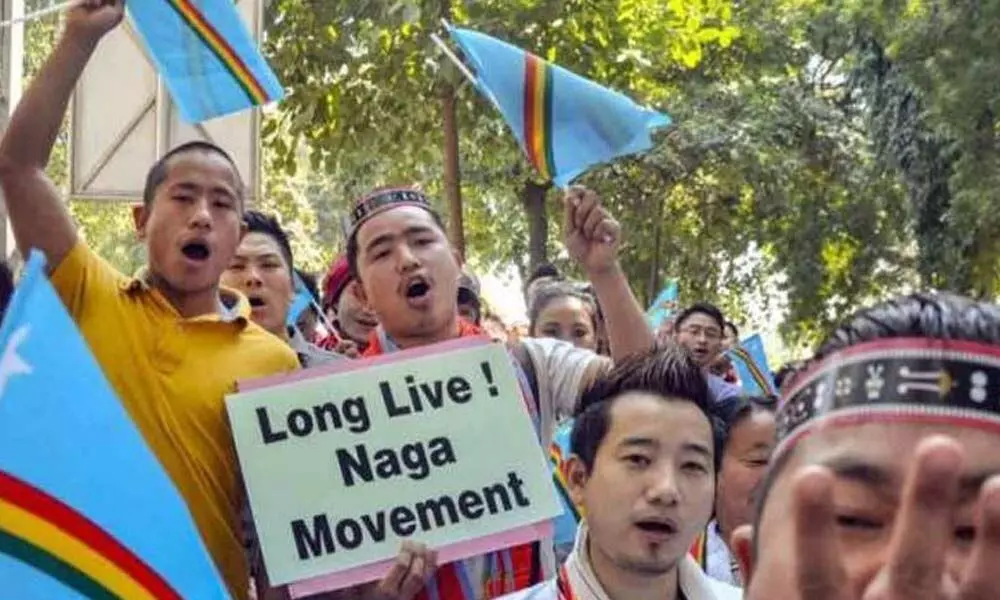
Naga peace talks, ex-babus and roadblock
To state that the Naga peace talks have hit a roadblock over the issue of Naga flag and a separate constitution is actually a half truth
To state that the Naga peace talks have hit a roadblock over the issue of Naga flag and a separate constitution is actually a half truth. If these twin issues today can derail the basic peace process that began in 1997, it may not be erroneous to suggest that the peace negotiations never took place all these years.
The peace talks were kicked off during the tenure of I. K. Gujral as the Prime Minister. The United Front-II under Gujral, a suave former foreign minister himself, in the backdrop of UF-1 under H. D. Deve Gowda, was on a weak turf. But the most precious episode of 'peace efforts' with ultras took place during this regime heralding much optimism among various stakeholders. Most important players were aware of the various complexities in Naga peace parleys as this was unlike the Mizo talks in the mid-1980s.
The Vajpayee government, which soon succeeded the Gujral regime, appointed Swaraj Kaushal as peace interlocutor in 1998. Kaushal, husband of the late BJP leader Sushma Swaraj, had handled the Mizo talks and was also Mizoram Governor later. The NSCN(IM) had issues with Kaushal and initially, it said the peace interlocutor was trying to resolve the Naga issue using 'Mizoram prism'. Well, things became difficult for Swaraj Kaushal and despite Sushma being a blue-eyed girl of both Atal Bihari Vajpayee and L. K. Advani, Kaushal gave up the assignment.
Since then, the Government of India under Vajpayee, Manmohan Singh and now Prime Minister Narendra Modi has banked on former central government officials. A retired IAS officer and former Union Home Secretary, K. Padmanabhaiah was the second negotiator. He gave indulgence to the militant groups and talks happened across the globe including a few well known South East Asian hubs.
In 2000-01, the Vajpayee government had toyed with the idea of putting in former Lok Sabha Speaker, P. A. Sangma, as the peace negotiator. This was objected to by Sangma's fellow Congress colleague Tarun Gogoi, who said no active politician from the Northeast should be given such a role. Sangma was furious with both Vajpayee and Tarun Gogoi.
Had the agenda been 'made public' in the 1990s or even in the new millennium, we would not have had headlines screaming in October 2021 that the Naga peace talks have hit a roadblock due to twin issues of flag and constitution (Yehzabo). Even then, these twin issues were hanging fire but the babus (especially the retired club) did not brief the political leadership well and things went on. It was a virtual status quo in talks since 1997; and today it is circa 2021. Except for the issue of 'unity or bringing all contiguous Naga areas under one administrative umbrella' nothing much was perhaps discussed in a concrete manner.
After Padmanabhaiah, the Manmohan Singh government tried R. S. Pandey as the negotiator. A former state chief secretary and Nagaland being his state cadre, it was presumed that his approach would be different. On this front, sources say, Pandey often faced a handicap as then Prime Minister Manmohan Singh hesitated to give 'political clearance'. In between the Manmohan Singh-led UPA-2 lost popularity over corruption issues and slowly its credibility. Pandey resigned in the run-up to the 2014 general elections and suddenly appeared along with Sunil Shastri and another former babu, R. K. Singh one afternoon and joined the BJP. R. K. Singh, the IAS officer who arrested L. K. Advani in 1990, is now Union Power Minister.
Under Modi, right from the beginning it was NSA Ajit Doval show vis-a-vis Naga talks. Rajnath Singh as Home Minister did not interfere much. R. N. Ravi, a friend of Doval, was made the new interlocutor. The NSCN (IM) never trusted Ravi but as the PMO put its foot down, talks went on. In between Doval and Ravi -- both from Intelligence background -- worked on other fronts and other Naga groups. The Naga National Political Group (NNPG), a conglomerate of seven Naga groups operating in Nagaland, came forward and said they were keen to ink a peace deal to ensure 'end of violence and arson' in Naga hills.
Ravi worked hard with the NSCN (IM) also and on August 3, 2015, he signed a Framework Agreement with none other than Muivah himself. The maverick Muivah had no option as his chairman Isak Chishi Swu was hospitalised in a serious condition. Subsequently, Ravi worked with the NNPG and on Nov 17, 2017, another pact titled 'Agreed Position or Preamble' was signed between the NNPG and the Government of India. The NNPG led by N. Kitovi Zhimomi is now ready to ink the peace pact. It has made it clear that they understand Prime Minister Narendra Modi's stance vis-a-vis flag and a separate constitution.
Another group led by Niki Sumi too has come forward showing keenness to embrace peace and development. In fact, in a recent statement after meeting with new interlocutor A. K. Mishra, it pledged to go by the "aspirations and wishes of the Naga people".
But the latest salvo from the NSCN(IM) does not augur well for the peace process. "....the talks failed to live up to all the hype as the Government of India continues to indulge in political escapism" on the very issues that are holding up the road to the Naga solution, the NSCN (IM) has said in a statement on Oct 23, 2021.
The negativity could have serious implications. Firstly, the Government of India may have to take a call to go ahead with some agreements with other groups -- NNPG and the Niki Sumi-led faction. In such a situation, there could be negative and violent fallout in more ways than one. Moreover, the NSCN(IM) has a strong presence in Manipur as the Tankhul Naga tribe (of Muivah himself) has a sizable presence in some pockets of Manipur. This Northeastern state goes to the polls along with Uttar Pradesh, Punjab and Goa in February-March.
The Meitei Manipuris, the majority population in Manipur, have been always cautious that in no way the state's boundary should be affected. Violence in Naga inhabited hilly regions in Manipur would again hamper smooth conduct of elections in the state.
Future tense
As someone who has been covering governance under various dispensations, I cannot vouch that New Delhi has kept all its promises either to the Nagas or to the other sections of people. But under the given circumstances, allowing one or more Naga groups to go back to the jungle will not be advisable.
The Congress party has already said that, "The Naga peace talks have suffered a serious setback due to the ham-handed approach of the Modi government". Well, not many common Nagas will disagree with this allegation, but the same Naga people also know that the Congress party lost a golden opportunity between 2004 and 2014 when they were in power.
On the other hand, as a practical solution or a road map, one can suggest that the Modi Government should prepare a draft agreement for Nagaland and Naga people; and announce all its economic packages and other policy announcements. It can perhaps also express regret if not tender an apology for all 'past mistakes' and failing to keep 'old promises' made in the 1960 Statehood agreement to the Nagas.
The 'New India' as PM Modi keeps mentioning, can give a solemn assurance that it will not commit any breach of faith. Time to create a new set of 'gentleman's promises' and time to pledge to honour those. The Naga hills are crying for peace.
(Nirendra Dev is a New Delhi-based journalist)









